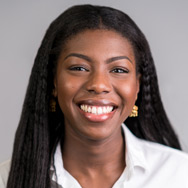
Part of the beauty of being human is our multiplicity of identities. I am a black woman. I am of Gambian descent. I am a daughter and granddaughter, a sister and a friend. I express myself in person and online, in pictures, words and actions. I can call, or have called, London, Kent, Northampton and Cambridge my home.
My performance in these varying roles and places culminate in what it means to be me. However, the significance of our identities extends beyond the immediacy of how you or I choose to identify ourselves. Our identities are also expressions of our communities. Some communities we are born into. Others we choose to be part of. Even those communities we reject say something important about who we are and about our estimation of these groups and places.
This leads me to wonder: what does it mean to be part of a community? The question is deceptively simple. While certain memberships take priority at particular times, we are inevitably faced with the need to negotiate our identities and, therefore, our communities. Furthermore, our range of choice is to a considerable extent bound by our environments and the people existing in them. We might, in order to succeed or survive, need to yield to elements of our circumstance.
This captures a familiar theme in the stories of the Stars of Rare Rising Stars 2017. Theirs are stories of challenging socioeconomic environments, difficulties at home or troubles at school. But, they also share a story of love - of parents and friends who encouraged them and who the Stars, in turn, want to make proud.
The tension that lies within these tales is invariably exacerbated by another common feature of our Stars: their blackness. All too often, their ambition presents the Stars with a decision to leave a world of diversity to one of homogeneity, where they become the exception to the rule. As Daniel Stone describes in ‘Handsworth,’ there is something uncomfortable about forgoing acceptance and entering into uncertainty.
In many ways, their stories, like our own, present us with existential questions. This is because communities are far more than the physical and online spaces we occupy. Fundamentally, they are networks of people through which we define ourselves, or become defined. Where harmony exists between self-definition and our wider community, we feel confident in sharing sorrow, finding refuge and celebrating triumphs. Antagonistic relations, on the other hand, can result in harm or demand compromise on behalf of those deemed ‘too different’. Therefore, while we are part of many communities, perhaps the most meaningful ones are those we call home. Whether this a particular place or group of people, home signals our investment and our desire to make a change.
In a world that often seeks to diminish blackness, or is made uncomfortable by its presence, there is power in coming together to celebrate as a black community. Ndakuna Fonso Amidou, 2016’s number one Rare Rising Star, still cherishes being able to share “good things together.”
This is why Rare Rising Stars matters. It is home for tonight, in this publication and for readers who see their struggles and victories in the Stars. The Stars’ stories will live on once the magic of the night has passed. We will remember how their communities shaped them and how they shaped their communities. We will also remember the important message from their stories: own your sphere of influence and make a difference.
Welcome to Rare Rising Stars 2017.
Sarah Lusack
Editor
Rare Rising Stars 2017

